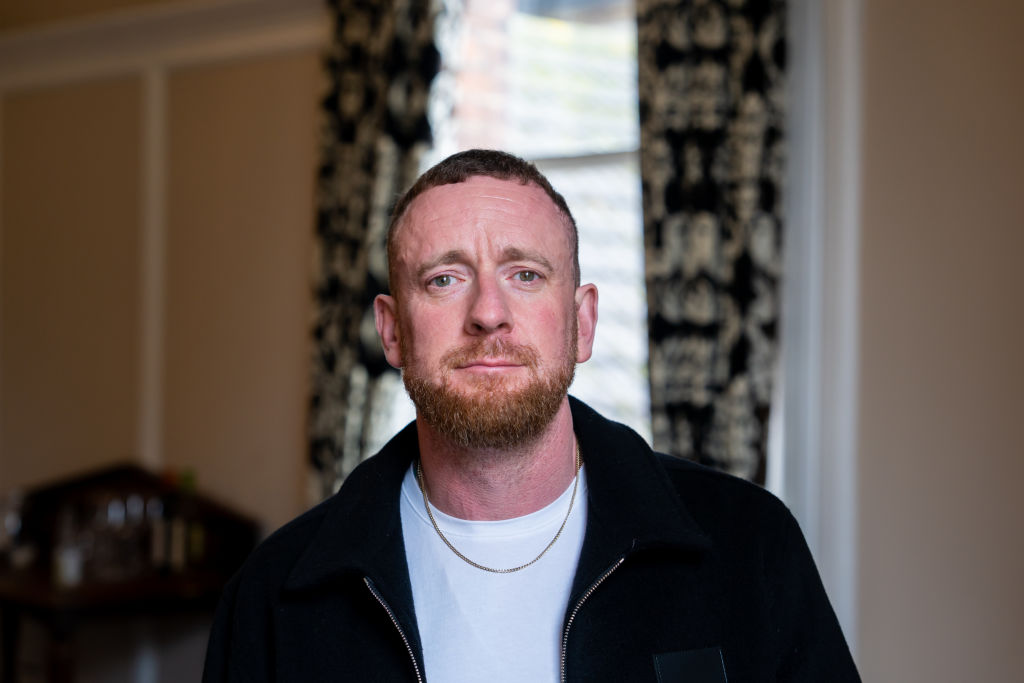'He’s got a heart under there' – Bradley Wiggins reveals Lance Armstrong offered to pay for his therapy in the USA
2012 Tour de France winner talks about how he is overcoming his deep-rooted mental issues

Bradley Wiggins has said he is in the "best place" he has been in his whole life but that he is also considering accepting an offer from Lance Armstrong to pay for a week of special therapy in the USA.
Wiggins has spoken openly about mental problems in recent years but explained to The High Performance Podcast that he has found new balance and happiness. He also revealed he is writing a new book about his life and difficulties.
Wiggins travelled to the USA in the summer to appear on Armstrong's podcast during the Tour de France. Armstrong was stripped of his seven Tours de France victories after a doping investigation by USADA. He fought the case all the way before ultimately confessing to his doping.
Wiggins criticised Armstrong for his doping at the time but now sees him in a different light.
"Lance has helped me a lot in recent years, more so this year," Wiggins said. "Talking about therapy, he wants to pay for me to go to this big place in Atlanta, where you stay for a week, they take your phone off you. Lance was going to fund that for me. He’s a good man.
"That’s not to condone what he did, we all know that, but it's a bit disproportionate to what some people get away with in this world. He's got a heart under there somewhere."
Wiggins has preferred to take his own route to understanding and confronting his mental problems but could yet accept Armstrong's offer.
Get The Leadout Newsletter
The latest race content, interviews, features, reviews and expert buying guides, direct to your inbox!
"That was five months ago, but I'm considering speaking to him," he said. "I wanted to get back to a semblance of order, without talking to someone… Now I know what I want to talk to a therapist about.
"I've got much more of an idea of the behaviour partners I've been left with, what drives me and where do they come from. I didn't just want to go in there and say 'Sort me out.'"
Wiggins' personal journey started in a difficult area of central London. He wanted to emulate his father Garry, who raced as a professional on the track but then was abused by a local coach.
He channelled his anger to drive his cycling career which peaked with his 2012 Tour de France victory and a gold medal in the time trial at the London Olympic Games.
"The biggest thing that has impacted me and the biggest thing I've come to terms with, the biggest thing that caused me the most amount of pain, was the fact I was sexually abused for three years by my first coach between the ages of 13 and 16," Wiggins openly admitted.
"When I started to accept that, after I’d ignored it for 30 years, I realised that it was partially why I was successful. It was the greatest distraction I could have in those years.
"When I retired, I really resented cycling. I said a lot of times that I hated cycling because I blamed getting into cycling for the reason I met this guy. That was a real process for me. The five years of going through that."
The alleged abuser was named by The Times as Stan Knight of the Archer Road club in West London. Wiggins revealed that four other people who were in the club at the same time have since come forward, helping to lift a weight off his shoulders.
Wiggins' personal journey means he is finally finding happiness in his struggles. A year ago he isolated in a hotel, with his teenage son intervening to help him recognise the self-destructive mode he was in.
Despite problems of bankruptcy and debts, he is back riding his bike and taking control of his life.
"There always seemed to be something that was causing me issues. I’ve realised now that there’s never going to be a clear path. There's always going to be something happening," Wiggins said.
"I was one of those people who wallowed in self-pity, especially after my career, asking why it always happened to me. I've realised that these things only become inter-related if you let them affect your behaviour. I was one of those people who would drink and I'd be late for something or not turn up for something and it would affect my behaviour.
"Now I’m in the best place I've been for 44 years of my life. That’s largely down to the fact I've been to the arse-end of the world. I've been in dark places at times, for various reasons. I've experienced extreme highs with my success, and other aspects of my life, but I’ve also experienced, like most of us, the other end of the spectrum.
"I've spent five years sorting it out in my mind. I've finally taken responsibility for my own life. I’m not in a position where I’m playing the blame game. I think my best years are yet to come."

Stephen is one of the most experienced member of the Cyclingnews team, having reported on professional cycling since 1994. He has been Head of News at Cyclingnews since 2022, before which he held the position of European editor since 2012 and previously worked for Reuters, Shift Active Media, and CyclingWeekly, among other publications.